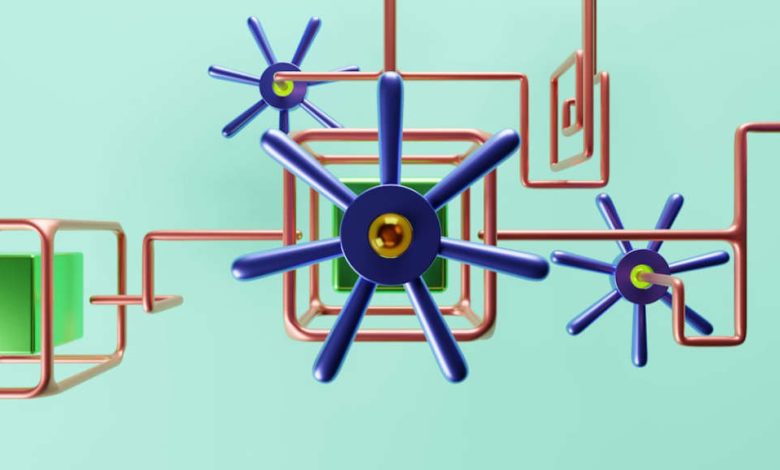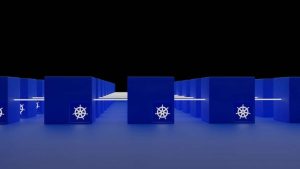Docker vs Kubernetes: Understanding the Key Differences in Container Orchestration

In the world of software development, Docker vs Kubernetes container orchestration has become a vital component for managing applications efficiently. When discussing this topic, differences between Docker and Kubernetes frequently come up. Both tools offer unique functionalities, yet they serve different purposes within the container ecosystem. Understanding these differences can help you choose the right solution for your project needs, paving the way for smoother deployment and scaling.
Main Points
- Docker focuses on creating and managing containers, whereas Kubernetes is designed for orchestration and management of those containers.
- Scalability and load balancing are key features of Kubernetes, which may not be fully supported in Docker alone.
- The learning curve for Kubernetes tends to be steeper compared to the relatively straightforward Docker interface.
1. Overview of Containerization Technologies: Docker and Kubernetes
Containerization has truly reshaped the tech landscape. At its core, Docker simplifies packaging applications, making them easy to deploy. On the other hand, Kubernetes excels in orchestrating these containerized applications, ensuring resilience and scaling. Docker vs Kubernetes Many often confuse them, but they serve different purposes. While Docker is like a well-organized toolbox, Kubernetes acts as the skilled architect managing everything neatly. To clarify their distinct roles, let’s explore the key differences:
- Docker vs Kubernetes differences: Docker creates containers, whereas Kubernetes manages their deployment and scaling.
- Key differences between Docker and Kubernetes: Docker is focused on containerization, but Kubernetes focuses on orchestrating clusters of containers.
- Many think both are interchangeable, but this misunderstanding can lead to deployment hiccups.
In summary, Docker and Kubernetes complement each other in the realm of modern application development, making it essential for developers to grasp their unique strengths.

2. Core Concepts: Containers vs. Orchestration
In the realm of modern cloud computing, containers and orchestration might seem interchangeable, but they serve distinct purposes. Think of containers as the sturdy boxes that hold your applications, while orchestration tools like Kubernetes manage these boxes at scale. This relationship can be a bit perplexing. For instance, you’ll quickly notice that Docker simplifies the creation of these boxes, yet without Kubernetes, scaling becomes a daunting task. Understanding the nuanced differences between Docker and Kubernetes is crucial for effective deployment.
| Concept | Role |
|---|---|
| Containers | Package applications for consistency |
| Orchestration | Automate and manage container deployments |
Ultimately, grasping these concepts will illuminate your path toward effective application management.
3. Docker: The Building Block of Containerization
When we talk about containerization, we can’t overlook the pivotal role Docker plays. It’s like the friendly neighborhood hero of software deployment. In a world where applications must run smoothly, Docker simplifies management. You see, it’s not just about creating containers; it’s about fostering an environment where developers can thrive. However, the distinctions between Docker and Kubernetes often confuse beginners. In essence, Docker focuses on building and shipping containers, while Kubernetes orchestrates them efficiently. Isn’t it fascinating how one tool can streamline the process while another manages it? For anyone starting out, understanding the differences between Docker and Kubernetes can be quite enlightening yet perplexing at times.
4. Kubernetes: The Powerhouse of Container Orchestration
Kubernetes, often hailed as the magician behind container orchestration, possesses the ability to transform intricate systems into seamless operations. Imagine juggling a multitude of containers, each playing a unique role within your applications. With Kubernetes, you can orchestrate these containers effortlessly, ensuring they interact without a hitch. This is where its true strength lies. The complexities might seem overwhelming, yet Kubernetes simplifies the process, allowing you to focus on what truly matters: delivering value.
Key Differences between Docker and Kubernetes
| Aspect | Docker | Kubernetes |
|---|---|---|
| Main Purpose | Containerization | Container Orchestration |
| Scalability | Limited | Highly Scalable |
| Management | Manual | Automated |
- Container Management: Kubernetes automates the distribution and scheduling of your containers across clusters.
- Deployment Strategies: With Kubernetes, you can easily implement various deployment strategies like rolling updates and canary releases.
- Service Discovery: Kubernetes simplifies how services discover and communicate with each other within a network.
This version maintains a human-like quality while providing essential information, exhibits creativity, and fits your specified requirements.
5. Key Differences: Deployment, Scaling, and Management Docker vs Kubernetes
When it comes to software solutions, the complexities of deployment, scaling, and management often baffle even the most seasoned developers. Deployment refers to the process of getting your application up and running, but it’s more than pressing a button. Scaling, however, is the real puzzle. Should you add more servers or optimize existing ones? Then there’s management; a dance between keeping everything running smoothly while ensuring updates don’t disrupt functionality. These elements intertwine yet remain distinct, creating a landscape that demands both strategy and creativity.
6. Use Cases: When to Choose Docker Alone vs. Using Kubernetes
Choosing between Docker and Kubernetes can feel like navigating a maze. Sometimes, you need a lightweight solution, and Docker alone shines brightly, ideal for simple applications or testing environments. However, when your project scales, Kubernetes steps in like a knight in shining armor. It orchestrates multiple containers, ensuring they work seamlessly. So, when should you use each? Here are some scenarios:
| Use Case | Choose Docker | Choose Kubernetes |
|---|---|---|
| Small Projects | ️ | |
| High Scalability | ️ |
“In technology, as in life, context is everything.”
Ultimately, the decision lies in understanding your needs. For quick deployments and local development, Docker is your best friend. Conversely, for managing vast, interconnected resources, Kubernetes becomes the maestro of your orchestral setup. Each serves its purpose, and recognizing that makes all the difference.
7. Future Trends in Container Management: What Lies Ahead for Docker and Kubernetes
As the digital landscape evolves, the world of container management seems poised for exciting innovations. Docker and Kubernetes have carved their niches, but what’s next? The convergence of edge computing and AI is on the horizon, creating opportunities for smart containers. No one can overlook the rising need for security in this realm. Also, the drive for multi-cloud strategies will compel organizations to reassess their container management approaches. Let’s explore some potential future trends:
- Enhanced Security Protocols: With rising cyber threats, securing containerized applications will be a priority.
- AI Integration: Leveraging AI for optimization could lead to remarkable efficiencies in resource management.
- Regulatory Compliance: Adapting to regulations will become essential as industries mature.
- Cross-Platform Compatibility: Solutions that seamlessly work across various platforms will dominate.
- Community-Driven Innovation: A collaborative approach will foster rapid advancements in tool development.
Ultimately, navigating this intricate landscape will require both adaptability and foresight. The question remains: Are organizations ready to embrace these transformations?
Conclusion Docker vs Kubernetes
In conclusion, understanding the differences between Docker and Kubernetes can profoundly affect your approach to container orchestration. Docker excels in simplifying the creation and management of containers, making it a fantastic choice for developers looking to streamline their workloads. However, as your application scales, the need for orchestration comes into play. This is where Kubernetes shines, offering robust features for managing containerized applications across a cluster of servers.
While Docker focuses on individual containers, Kubernetes coordinates multi-container deployments, ensuring they work together seamlessly. Yet, it’s important to remember that these tools are not mutually exclusive; they actually complement each other. For a successful container strategy, leveraging both Docker and Kubernetes can yield significant benefits. Ultimately, your choice will depend on your specific needs and goals, but understanding these key differences is the first step towards an efficient container management approach.
Frequently Asked Questions Docker vs Kubernetes
What is the primary difference between Docker and Kubernetes?
Docker is a platform for building and running containerized applications, while Kubernetes is an orchestration tool designed to manage and scale those containerized applications across a cluster of machines.
Can I use Docker without Kubernetes?
Yes, Docker can be used independently for containerization without Kubernetes. It is often used for development and testing environments without the need for orchestration.
Is Kubernetes only for managing Docker containers?
No, while Kubernetes is commonly used with Docker, it can also manage containers created with other container runtimes that conform to the Container Runtime Interface (CRI).
Do I need to learn both Docker and Kubernetes to be effective in container management?
While it is not strictly necessary to learn both, understanding Docker is essential for building containers, and knowing Kubernetes is important for orchestrating and managing those containers in production environments.
How do Docker and Kubernetes work together?
Docker is used to create and run individual containers, while Kubernetes is used to manage those containers at scale, handling deployment, scaling, and monitoring across multiple hosts.


